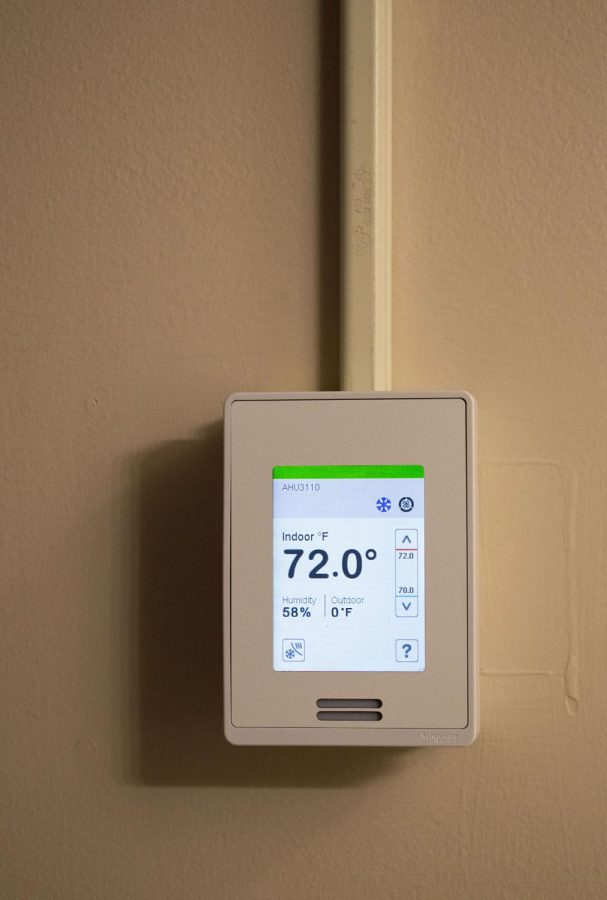First-year residents unable to cool off
Casey Kula | Chief Photographer
Students in the resident halls complain about the temperature in their dorm rooms, saying that they are “hot and stuffy.”
September 2, 2021
At the University of North Alabama, all freshmen, with very few exceptions, are required to live on campus. Because of this, its residence halls are freshly packed with jittery first-year students. These students are, for the most part, still settling into their newly-sanitized rooms and adjusting to their newfound freedom.
UNA’s freshman dormitory is called Olive Hall. It houses 429 students. However, the university has housing options open to underclassmen and upperclassmen alike, such as Mattielou Hall and Rivers Hall, which house 334 and 429 students, respectively, as well as Covington Hall, which holds 92 beds. The majority of the young adults in these buildings have not lived away from home prior to this year.
For these residents, UNA tries to ensure that all of their needs are met. In order to enhance their quality of on- campus life, their housing options include commodities such as washing machines, vending machines, dryers, sofas, televisions and kitchen sinks. But regardless of its efforts, this year, numerous students find themselves somewhat displeased with their living conditions.
These students take issue with the centralized air conditioning in their rooms. They complain that their living quarters are hot and stuffy, and they are politelyrequesting that some simple but significant alterations be made to the temperatures of their dormitories.
This comfort-related issue seems to be more prominent at Covington, Mattielou and Olive. A randomly-selected survey of 10 bedrooms throughout Olive Hall saw 60% asserting themselves as dissatisfied with the level of air conditioning they are receiving. The other 40% did not respond.
Haley Moore, a freshman residing in Olive Hall, laments the fact that despite her predisposition to warm spaces, she grows uncomfortably toasty while sleeping at night and concedes that she, along with her friends in other residence halls, often wakes up unexpectedly sweaty in the morning.
Central air is cooled at a given spot inside a residential area and subsequently transported to the rooms located on the premises. In theory, this process poses several benefits, such as good circulationand consistent temperatures. However, when air cooled via a central location in a residence hall does not effectively reach its intended destinations, adverse effects are subject to occur.
High indoor temperatures, especially when coupled with considerable humidity, lead directly to physical and psychological human responses that may elicit bad moods and mounting tempers.
The World Health Organization (WHO) promotes cool living spaces and recommends indoor temperatures be kept below 75 degrees Fahrenheit overnight. UNA appears to be taking the suggestions of the WHO, as the preset thermostats mounted on the walls of each dorm room are sitting permanently at 72 degrees, yet some students have come forward to say their bedrooms are as hot as 80 degrees.
Janese Green, a residential assistant in Olive, said that only a small cluster of on- campus students are operating in less-than- satisfactory situations, and she notes that university maintenance is indeed tackling the problem at hand.
Mild discontent permeates the University of North Alabama’s residence halls as many first-year residents verbally protest the nature of their rooms’ air conditioning units, which they believe to be ineffective. Official complaints are able to be made by means of UNA’s website. Here, students can request reasonable changes relating to concerns over housing temperatures.



